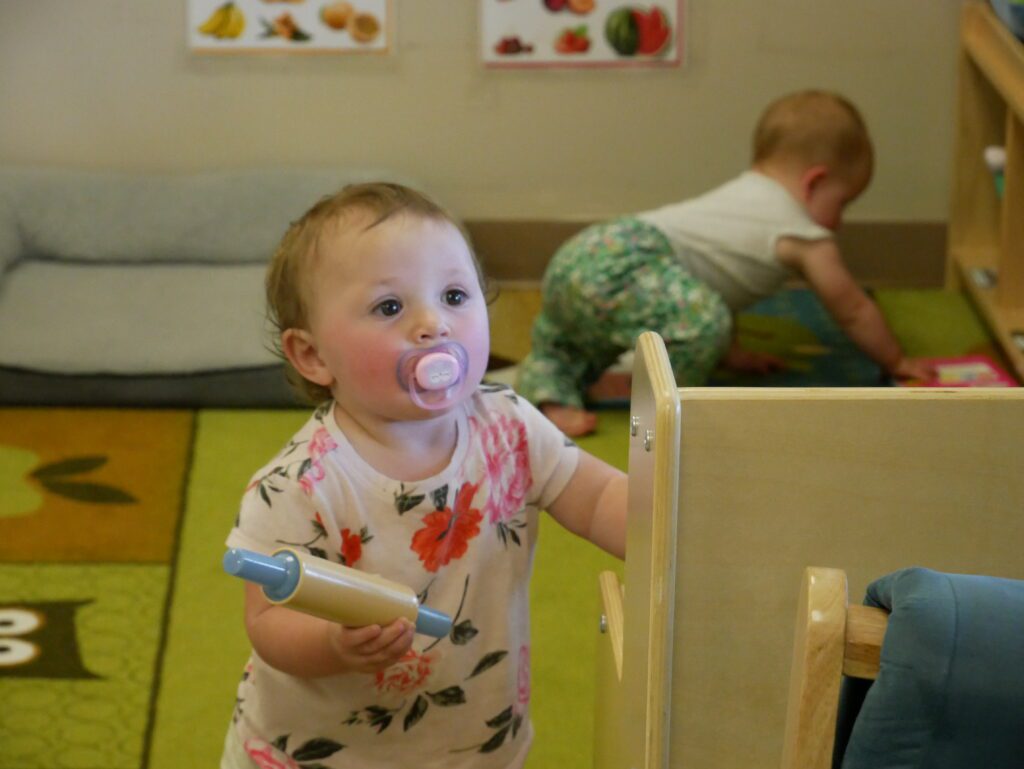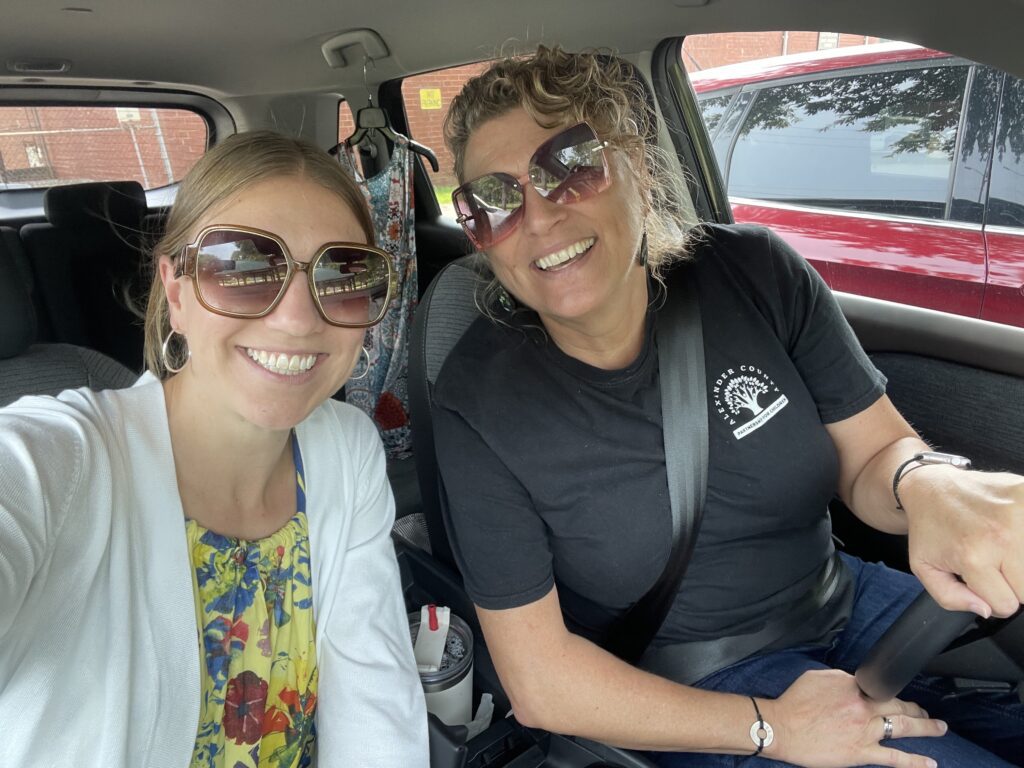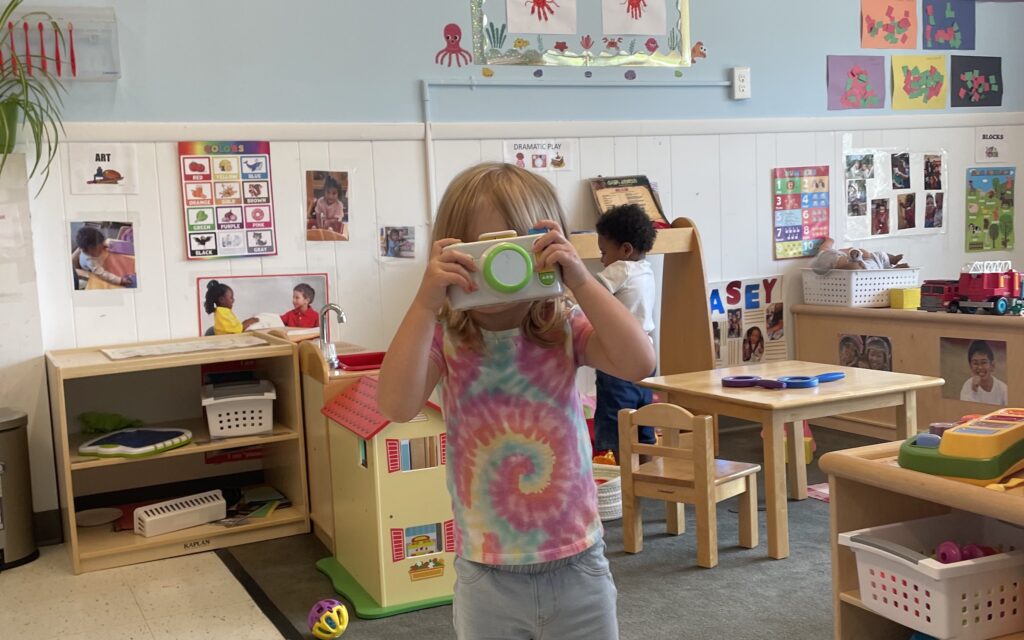Intergenerational child care, playtime
Early Bird readers, hello again. Newcomers, welcome! If you were forwarded this email, you can sign up here to receive it every two weeks, and join our conversation on issues facing North Carolina’s young children and those who support them. If you’re already a subscriber, please help us reach more people by sharing this with your friends and co-workers interested in early childhood education.

Editor’s Note: A previous version of this edition misnamed the director of Generations Child Development Center. Her name is Kayla Absher, not Sarah Absher.
The second piece in EdNC’s summer child care series, “School’s not out,” is live! I break down the plan I wrote about in the last edition of Early Bird: a cross-sector vision to build a child care model that expands access in rural communities while strengthening the early childhood teacher pipeline. Ashe County leaders are hoping for $5.5 million to implement that model in a district pre-K site they would call the REALM (relationships, engagement, art, literacy, and math) center. Read more here.
While in Ashe County, I spoke to several teachers, directors, and leaders. Not everything could make it into the story. So I’m writing here about a unique model that stuck with me that I didn’t want you all to miss hearing about.
Combining care
Generations Child Development Center in West Jefferson is part of a larger organization, Generations Ashe, which runs the child care program along with a center for low-income seniors, an assisted living center, and a day program for adults with disabilities.
In a landscape strapped for funding, this co-locating approach has benefits. Director Kayla Absher said the program’s model has helped them weather the pandemic and the field’s recent staffing challenges.
The center is physically connected to the adult day program, which helps with some costs and facilities, as well as access to a nurse. And the program provides employee benefits (paid time off, and health, dental, and vision insurance) that are hard to find in the child care field.
“That’s part of us being under a larger organization that we’re able to offer that,” Absher said.

She said that’s led to a more stable pool of teachers. The program is fully staffed and, though one teacher will soon leave for the school district, she has someone in mind that she said is a good fit. The program is also signed up for the Building Bright Futures and ApprenticeNC, which Absher said she’ll be encouraging the new teacher to take advantage of.
Along with the financial advantages of the model, the intergenerational experiences children have are powerful, Absher said. Research has found co-locating models have health and well-being benefits for both younger and older participants.
“It’s really awesome to see these little ones interacting with the older folks,” Absher said. “And I’ve had parents tell me that it’s made a world of a difference.”
Space is the program’s main barrier to serving more children, she said, which serves 40 children total and keeps a waitlist of 65 to 70 students. Absher was able to reopen an infant room in 2021 that was closed during the pandemic, which she knew was an especially dire need in the community. Thank you, Kayla, for having me.
Alexander piece coming soon
The following week, I spent a jam-packed two days in Alexander County meeting with all sorts of child care providers and community leaders. Paula Cline, executive director of the Alexander Partnership for Children, helped me make sense of it all. She is a gem.

I also had my favorite play session of the tour so far at the Early Head Start program.

Look out next for a piece on what the end of stabilization funds means for Alexander County child care — a community that has lost two of its largest providers since the pandemic.
I hope to see you on the road.
More from EdNC on early childhood
Ashe County is asking legislators for $5.5 million to build a child care model that works for rural communities
Ashe County leaders have a plan to expand child care access in their community and beyond.In Wilkes County, child care is 'a community problem.' Leaders are working on community solutions
A landscape study found Wilkes County needs double the child care slots it has. A task force is getting to work to make that happen.School's not out: EdNC hits the road this summer to tell local child care stories
We'll be documenting this moment in early care and education as federal relief funds run out and providers, teachers, families, and communities feel the impact — and rally together to make local progress in the absence of federal and state investments.Perspective | Minimum wage, Equal Pay Days, and early childhood value
Families rely on our early education system in order to keep working, and our state’s economy does, too. But we don’t pay these teachers in accordance with their incredible value to society.The big picture for little kids
News & Research
-
Missouri Makes One of Largest Investments in Early Childhood Education - From MissouriNet
-
Pregnancy can be risky in the US. In North Carolina, the threat of death is even higher. - From The News & Observer and The Charlotte Observer
-
New 10,000-square-foot child care center planned near Apple campus in Cary - From WRAL
-
In a Hostile Housing Landscape, Solutions Emerge to Support Home-Based Child Care Providers - From EdSurge
-
Biden administration takes another shot at affordable childcare - From Axios
-
Child Care Cliff: 3.2 Million Children Likely to Lose Spots with End of Federal Funds - From The Century Foundation
Taking flight! Opportunities to spread your wings
Early childhood leadership academy - From NC Early Education Coalition
This three-part training series is for all early care and education professionals interested in learning more about the history of child care, early childhood systems in North Carolina, and how to be an advocate for change.
A webinar on child care solutions - From The Hunt Institute
The Hunt Institute’s Early Efforts webinar series brings together experts to discuss the most pressing early childhood issues facing children, families, and policymakers. This one will feature: Elliot Haspel, author of Crawling Behind: America’s Child Care Crisis and How to Fix It, Marica Cox Mitchell, vice president of early childhood at the Bainum Family Foundation, and Cheryl Oldham, vice president of education policy at the U.S. Chamber of Commerce Foundation.
An early childhood apprenticeship initiative - From Building Bright Futures
Learn about how to get connected with this pilot initiative that’s offering support and resources to pre-apprentices and apprentices in the early childhood field.


